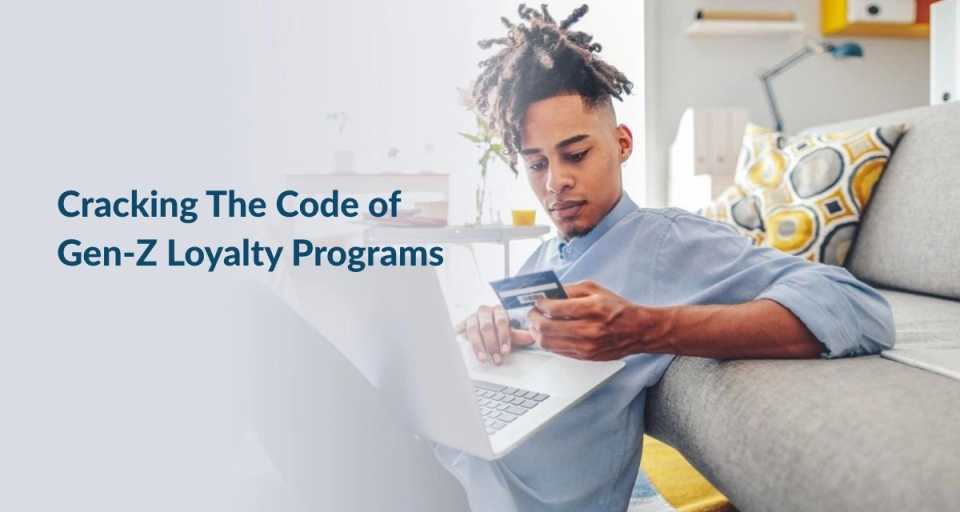In today’s ever-changing business landscape, Gen-Z has emerged as a force to be reckoned with.
This tech-savvy, socially conscious customer segment often has different values, preferences, and expectations than other generations. They are prone to be less loyal to brands. Gen-Z are savvy shoppers and tend to shop around for the best deals. This has left brands striving to develop loyalty strategies to attract Gen-Z.
Creating a loyalty program for Gen-Z requires a deep understanding of their values and preferences, data savviness, deploying appropriate technological tools and building the right partnerships.
Here are some key strategies for creating a winning loyalty program for a Gen-Z audience:
Personalization
Gen-Z values personalized experiences and rewards. Personalization requires access to data which is increasingly harder to come by due to the latest privacy regulations.
I’ve found the best strategy to get data is to make it an even exchange. If you give customers some value, they will be more willing to share data with you. Consequently, loyalty programs have emerged as a dominant strategy for data collection. Customers can be rewarded for taking surveys, providing feedback, etc. All this data can then be used for personalization.
A 2020 Oracle report found that 66% of Gen-Zers want personalized recommendations from an app while browsing in-store, and over 50% are willing to share their data to receive personalized rewards. Brands using data analytics can quickly tailor rewards and recommendations that resonate with individual customers.
A great example to consider is EasyJet, which used customer data to develop personalized stories for individual customers highlighting where they have traveled with EasyJet in the previous 20 years. The emails were highly creative, with dynamic content, images, and links. The result of the campaign was a 25% higher click-through rate and a 100% higher open rate than their average newsletter.
Personalization at scale doesn’t just retain customers once-off; it helps show customers they are valued and boosts their lifetime value.
Experiential Rewards
While the traditional point-based model with discounts and cashback rewards may have worked for the older generations, they aren’t always enough to retain Gen-Z.
Like Millennials, many Gen-Z customers prefer to spend money on experiences rather than material possessions. I’ve found Gen-Z customers find rewards not commonly available, such as backstage passes, VIP access or limited edition products, more appealing than cashbacks and discounts. In addition, research has shown that 70% of Gen-Z belong to a paid loyalty program, indicating that Gen-Z is ready to pay more to get those extra and exclusive perks.
For example, Sephora’s Beauty Insider program offers exclusive rewards such as early access to new products, limited edition products and more. This and other exclusive programs have helped Sephora build a loyal following among Gen-Zers who value these experiences.
Transactional rewards drive sales, while experiential ones can boost total customer lifetime value and nurture long-term brand loyalty.
Reward customers for soft actions that are not transactional but still offer value to the business. These actions include social media interactions, giving feedback, taking a quiz, watching videos or even just visiting the website.
Omnichannel Engagement
Gen-Z is the first generation to grow up with smartphones and digital technology. Many have short attention spans and are often quick to move on if things are too slow. And they demand the same from loyalty programs. If you want to retain Gen-Z, mobile-first loyalty programs that are easy to use, support digital payments and digital ordering, and implement the latest loyalty technology to interact with customers are your best bet.
For example, restaurants can consider using a mobile app to engage customers and offer personalized rewards. By offering mobile ordering and payment, you can make the customer experience seamless and convenient.
Social Responsibility
A 2020 report found that 73% of Gen-Zers are willing to pay more for sustainable products, and many also want companies to be socially responsible. Gen-Z do not shy from making their views known and standing up for social and political issues.
They prefer to shop with brands that share their values and are not completely profit-oriented. Companies like TOMS, which donates a portion of its profits to charity and supports social causes such as ending gun violence and improving mental health, may be able to connect better with Gen-Z customers. Sustainable loyalty programs aligned with charities or offering eco-friendly rewards, give customers a chance to help social causes and portray the business positively.
But, Gen-Z has the habit of thoroughly researching a brand and is good at identifying fake attempts to embrace CSR. Being genuine about your CSR efforts gives Gen-Z confidence to trust your brand.
Gamification And Challenges
Being a competitive generation, almost 60% of Gen-Z play video games or mobile games at least once a week. Brands can leverage this competitiveness to engage with Gen-Z by launching gamified loyalty programs. Popular gamification elements among Gen-Z include challenges, leaderboards, and rewards for achieving certain milestones. These elements can increase engagement and foster a sense of community among customers.
With gamification in loyalty programs, finding the right balance of effort and reward is crucial to maximizing engagement and program impact. This can be challenging as each customer is different. I suggest brands analyze transactional and behavioral data to understand their active customers and utilize technologies such as AI/ML to ensure that the rewards match every customer’s engagement level.
Ultimately, Gen-Z has significant buying power, estimated at $360 billion in 2022. With their unique characteristics and buying behavior, it is challenging for brands to deploy effective loyalty programs that work for them.
I believe that by employing loyalty strategies that incorporate personalization, convenience, and consistency brands can drive loyalty and foster long-term relationships with this generation.
This article was originally published on Forbes.com


